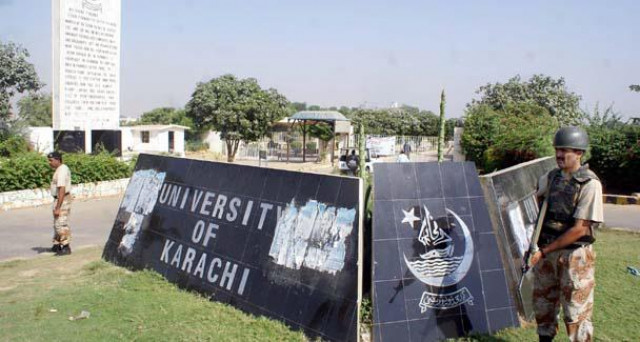Violence versus development: ‘Not all conflicts need to culminate into violence’
Senior researcher highlights several factors responsible for violence in developing nations.

Boris Wilke was speaking at a seminar, titled ‘Violence and Development: Options for Developing Countries’, at the University of Karachi’s Department of International Relations on Tuesday. PHOTO: FILE
He was speaking at a seminar, titled ‘Violence and Development: Options for Developing Countries’, at the University of Karachi’s Department of International Relations on Tuesday.
Wilke said that political violence had to be understood in the context of the social settings in which it occurred as culture played a vital role in shaping human behaviour. “To understand the overall dynamics of political violence, we must bear in mind all the factors that cause it,” he said. “It is, therefore, vital to develop an understanding of the social dynamics and fault lines that exist within a society.”
Elaborating on the culmination of a conflict into a violent movement, he said that the main reason behind the violence lay in the perception held by conflicting parties about each other, on the basis of which, they organised themselves and which later went on to decide the intensity of the conflict.
He remarked that it was quite ironical that most of the political violence occurred in developing countries while most of the scholarly work on political violence was produced in the developed world. Wilke spoke about the efforts of University of Bielefeld, Germany to bridge this intellectual gap between scholars from both regions. He explained how the faculty was trying to establish a network of researchers from different conflict-ridden countries to come up with a better understanding of the patterns and processes of the violence taking place in the developing region.
Prof. Dr Moonis Ahmar of the Department of International Relations, in his concluding speech, said that, “One needs to take into account the impact of violence on the vulnerable factions of society. There is a need to empower such vulnerable groups which include women, youth and children.”
Referring to the Geneva declaration on armed violence and development in 2010, he emphasised upon the significance of education in tackling the violence.
Published in The Express Tribune, September 11th, 2013.



















COMMENTS
Comments are moderated and generally will be posted if they are on-topic and not abusive.
For more information, please see our Comments FAQ